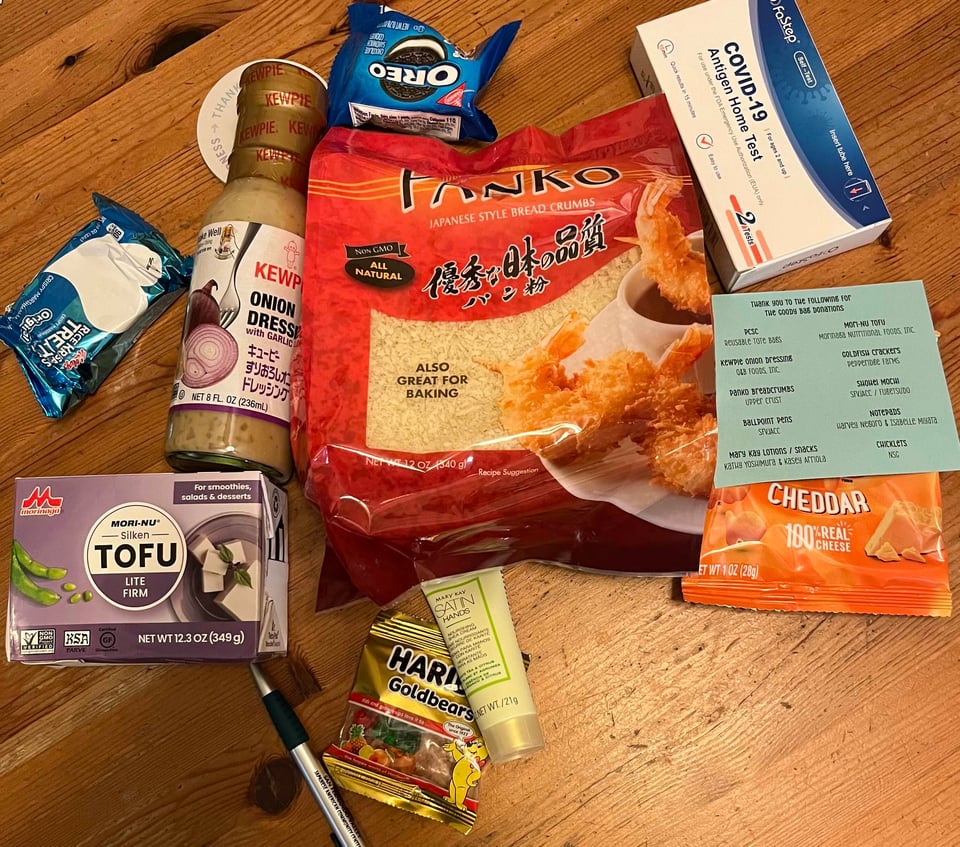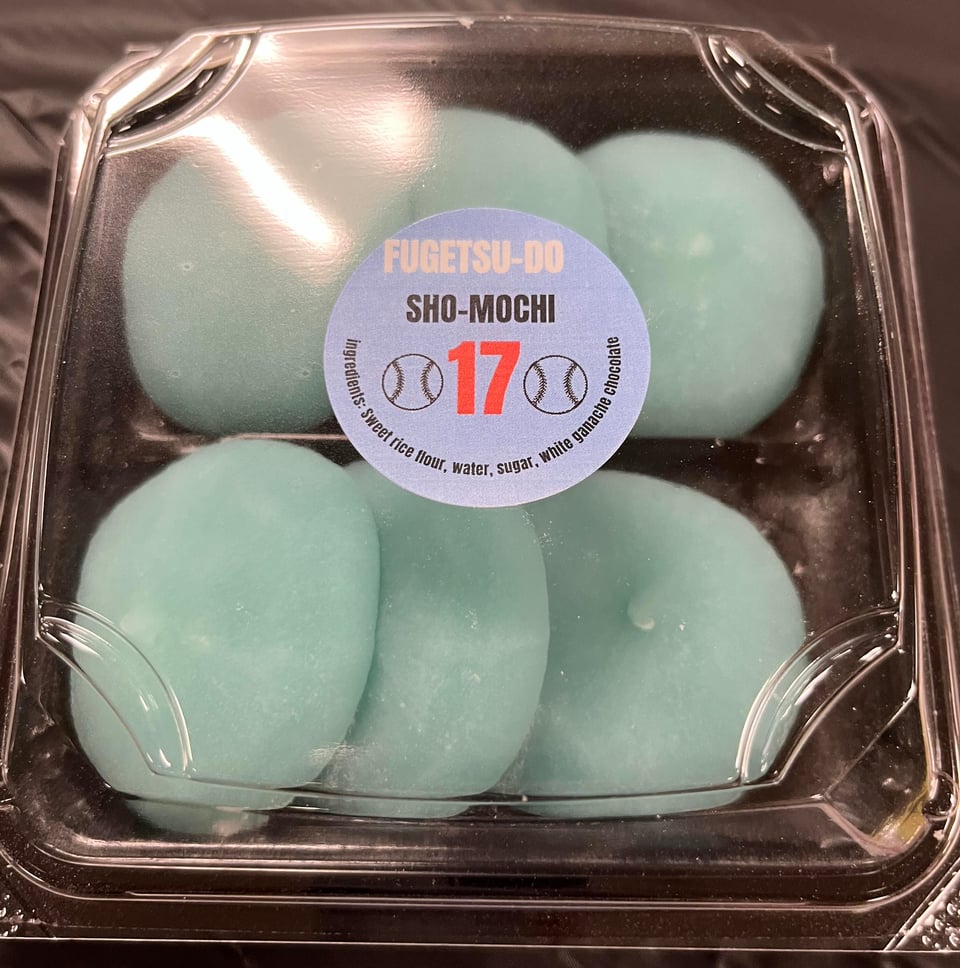ARTchivist's Notebook: Small, useful things

On Saturday I attended “Super Bingo,” a fundraiser at the San Fernando Japanese American Community Center. The prizes for getting a bingo were cash and gift cards, but it was the small prizes that caught my attention. These were given out periodically in the middle of a game to anyone who had a particular number. If you had “N43” you won things like a bag of Pepperidge Farm cookies, a highlighter pen, or a travel pack of Kleenex. People enthusiastically raised their hands to receive these little prizes, even though they probably didn’t really need them. Everyone likes to feel like a winner.
These prizes reminded me of the Yamaguchi-ken picnics my family attended in Los Angeles in the 1970s. These were large, outdoor social gatherings for everyone who came from Yamaguchi prefecture in Japan. For the kids there were races in which we enthusiastically competed, even though there were no winners or losers. Everyone got a prize: a small toy, a coloring book, some crayons. For the adults there was a raffle. I’m sure the biggest prizes must have been cash, but the ones I remember were small: a roll of paper towels, a box of Kleenex. Small, useful things.
Upon leaving the bingo night, we each received a gift bag filled with more small, useful things. I imagine this kind of indiscriminate, if modest largesse has been one way the Japanese American community has sustained itself, especially through the lean, postwar years, with a kind of mutual aid effort disguised as entertainment. I didn’t win anything that night — not even a pack of tissue — but I still came away feeling cared for.
As today, in the United States, we head into another inflection point sure to bring crises large and small, it’s important to remember the small, useful things. For cultural heritage workers, it could be a word of support for a struggling colleague or the application of a single term that honors the presence and preferences of a marginalized community. It’s easy to feel helpless in the face of huge, unpredictable change. What small, useful things can we focus on to help one another?
Here are a few hopefully useful things:
The Digital Library Federation’s Cultural Assessment Working Group just released its collaboratively authored Inclusive Metadata Toolkit. The product of much work by a multitude of contributors (including myself), it is full of small, useful things, from advocating for and beginning an inclusive metadata initiative to the nitty gritty of doing the work and assessing one’s progress.
The Getty Research Institute just published this article on the great work Emily Benoff did improving and remediating place names for Native American reservations and other important Indigenous sites in the Getty’s Thesaurus of Geographic Names.
The Getty has also released the slides from the International Terminology Working Group meeting, where I gave the keynote address on the role of controlled vocabularies in inclusive description. Alas, no recordings are available, but hopefully the slides give some sense of the myriad projects and ideas we discussed over the three-day event.
And speaking of feeling like a winner…

I’m not a baseball fan and yes, I understand how marketing bandwagons work, but I can’t help but be tickled by the way Shohei Ohtani has brought Japanese people and Japanese Americans together through the “great American pastime.” Fugetsu-do is a family-owned Japanese confectionary in Los Angeles’s Little Tokyo that was founded in 1903. It is one of the enduring tastes of my childhood - I probably ate Fugetsu-do manju at the Yamaguchi-ken picnic. Undeniably American and thoroughly transnational, this little package of blue mochi just sums up so much pride and longing that I can’t fully articulate it right now.